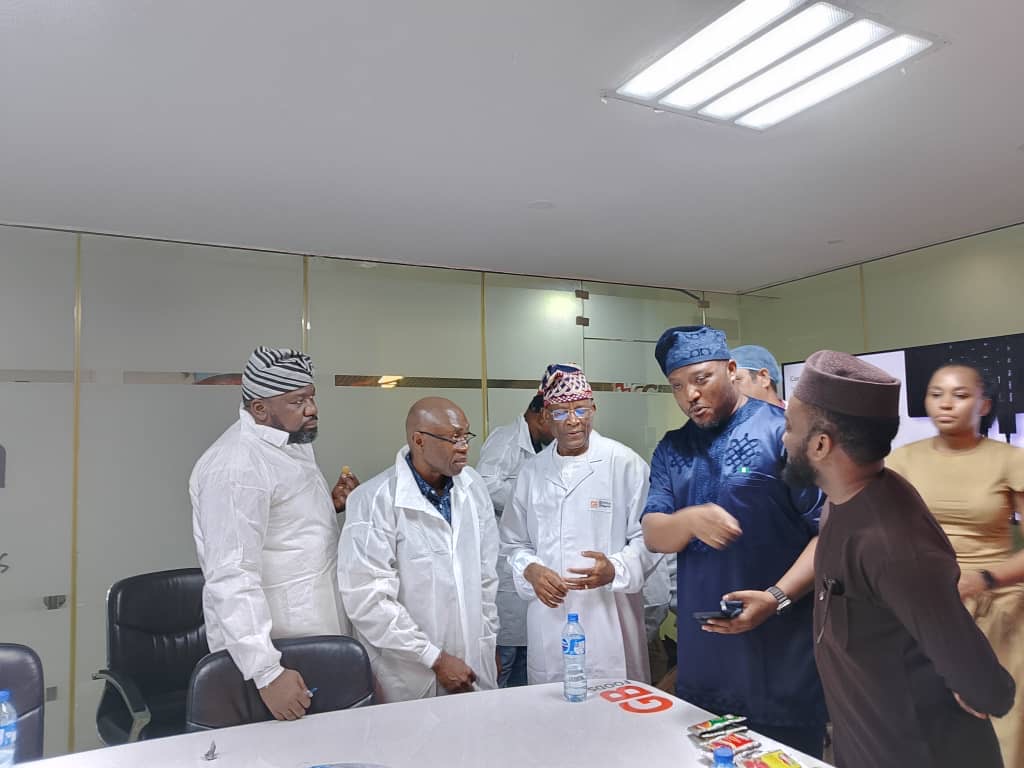Nigeria needs disruptive strategy to make significant progress – Nwala
By Philip Yatai
A lawyer and policy strategist, Dr Oracle Nwala, says Nigeria needs a disruptive strategy to achieve its governance and development goals for the benefits of all citizens.
Nwala stated this at the official unveiling of his book entitled, “Disruptive Strategies: Unveiling Personal Definitive Strategists”, in Abuja on Wednesday.
The author, an eminent member of the global legal community with over 25 years of experience in Nigeria’s legal and policy space, said that disruptive strategy would move the country forward.
Nwala, a member of the Senior Executive Course 43, National Institute for Policy and Strategic Studies, Kuru, Jos, defined disruptive strategy as essentially doing something the way it works with no regard to laid down procedures.
He added that it also entails looking at a system and taking decisions that work to get the needed results.
He recalled that President Bola Tinubu had disrupted Nigeria’s economy with the removal of fuel subsidy on the day he was inaugurated as president of the country.
Nwala said that the action was paying off with the economy gradually picking up and things getting better by the day.
According to him, what Nigerians need is continued disruption.
“Let us disrupt things that are not working; let’s disrupt things that are not helping us. The philosophy, the ideas and everything we have thought about and are not working let’s jettison them.
“Artificial Intelligence has disrupted the technology space and now young people are doing much more than we have ever done – this is disruption,” he said.
At a personal level, the author said that the book unveils the untapped potential within each individual to chart a unique path to success and fulfilment.
He added that by advocating a paradigm shift, the book underscores the importance of prioritising personal strategy alongside traditional business approaches to succeed.
“Disruptive Strategy empowers readers to confront life’s challenges with confidence and resilience, unlocking their full potential and achieving lasting fulfilment.
“Serving as a roadmap for those ready to break free from the ordinary, transcend limitations and embrace a life of purpose and achievement, the book is an invitation to seize control of your personal journey and thrive in the modern world.
“Whether redefining your personal or professional path, disruptive strategy combines real-world insights, practical tools and a deeply personal methodology to help you build resilience, think strategically and dominate your niche,” he said.
The book reviewer, Prof. Ahmed Okene, Provost, National Defence College, Abuja, said that disruptive strategy was simply querying existing norms or methods to achieve results.
Okene said that the book, made up of 12 chapters and 331 pages, provides a step-by-step guide on how to adopt disruptive strategy to achieve personal, governance, entrepreneurship, economy and other goals.
“In terms of governance and leadership, applying disruptive strategy means you will have to question the existing status quo to achieve desired results.
“People are used to doing things in a certain way; the way it is done but with disruptive strategy, you will have to query what you see; disorganise the system to reorganise it for it to work.
“In governance, you will have to think from a perspective that others have not thought of before,” he said.
One of Nwala’s coursemates at the National Institute, Mr Mukhtar Galadima, described the book as an eye opener in governance, leadership and personal life.
Galadima, the Director of Development Control, Federal Capital Territory Administration (FCTA), said: “What the book is simply saying is, don’t always follow protocol. Whatever will give you results, do it.
“The most important thing is getting the desired results.
“The FCT Minister, Mr Nyesom Wike, my boss, is applying this disruptive strategy and you can see the results,” he said. (NAN)
Edited by Muhammad Lawal









